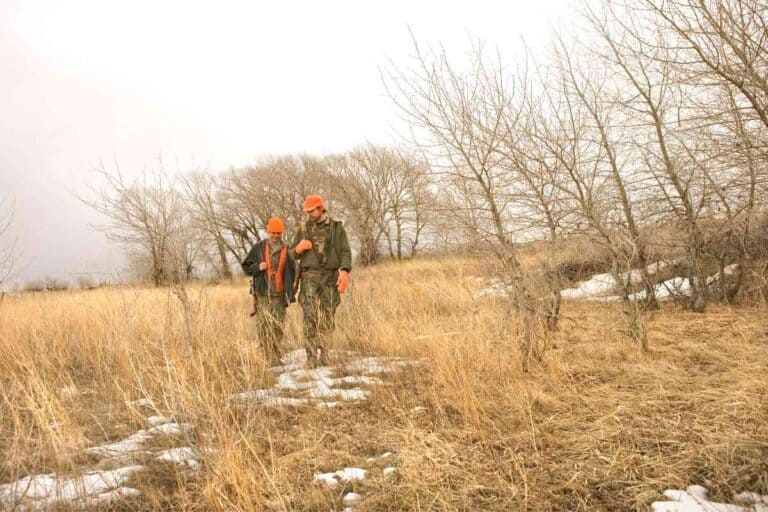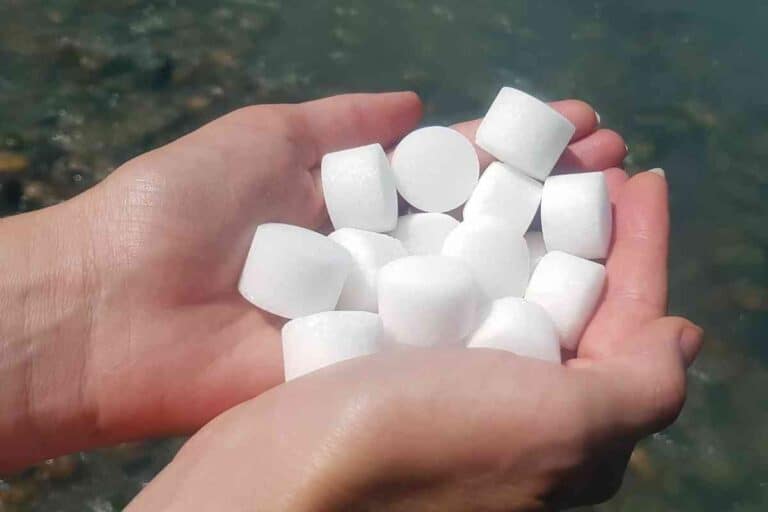Propane Tank Whistling Noise: What’s Normal And When To Run!
Propane tanks sometimes release sounds that can make owners panic. However, each sound signifies a specific thing and should not be a cause for alarm.
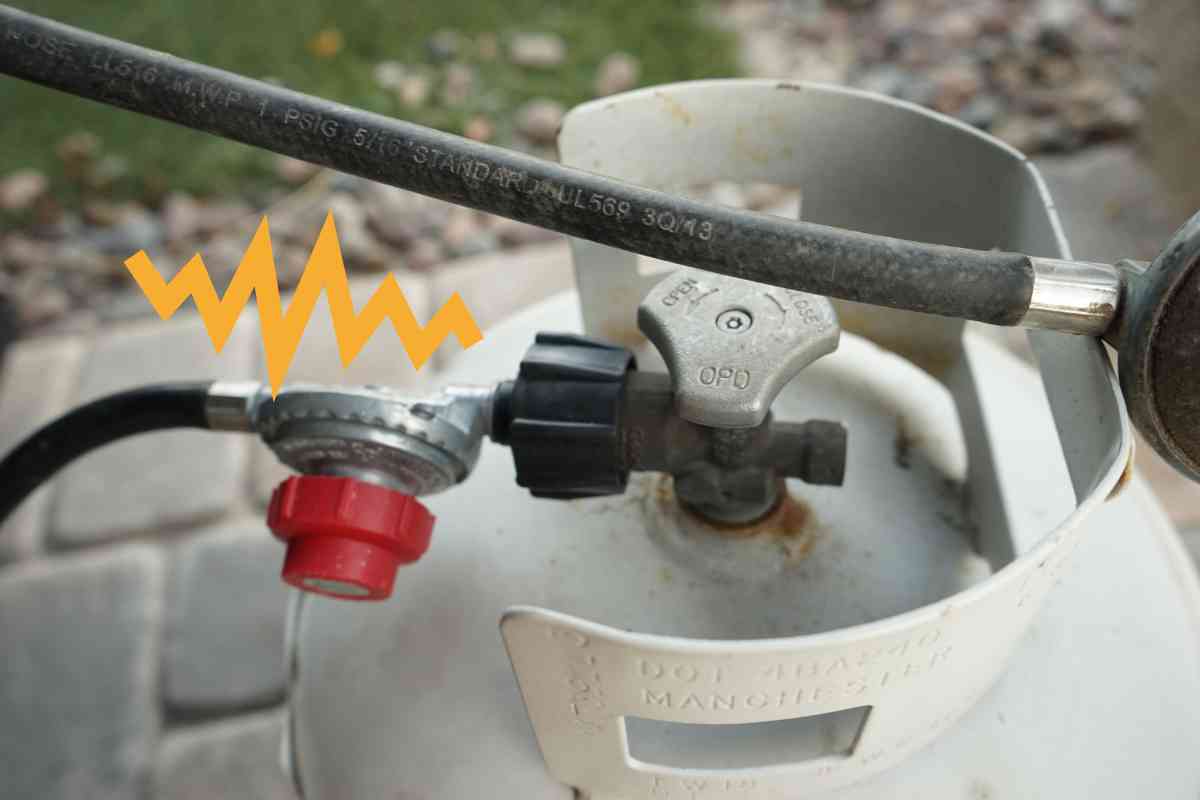
Why is my propane tank making a whistling sound?
Whistling sounds from your propane tank signify that your propane tank pressure is dissipating. It is possible that the valve is fully open in case the tank pressure exceeds the spring pressure, and you will likely hear a pop. This valve closes on its own when the pressure reduces.
Depending on the situation, you will likely hear several sounds and noises from your propane tank.
Most of these signify different things and must be interpreted correctly. We wanted to know each possible sound and embarked on a research journey, talking to experts and users alike.
Why Do Propane Tank Sounds Matter?
Learn how to identify the sounds, especially if you use propane for your heater, stove, or other purposes. They either come from the propane tank or other related accessories.
Note that proper identification of the sounds helps with appropriate solutions and guarantees overall safety.
Knocking Sounds
If you hear a knocking noise whenever you open the propane tank, chances are that the gas and air are unevenly mixed. Confirm this by checking the flames since how they burn helps with this.
Blue flames with a yellow tip mean that the two are properly mixed. A significant imbalance exists if the entire flame is white or yellow.
Contact a propane technician for assistance. The expert has the skills and knowledge to adjust how the air flows, thus restoring everything to how it should be.
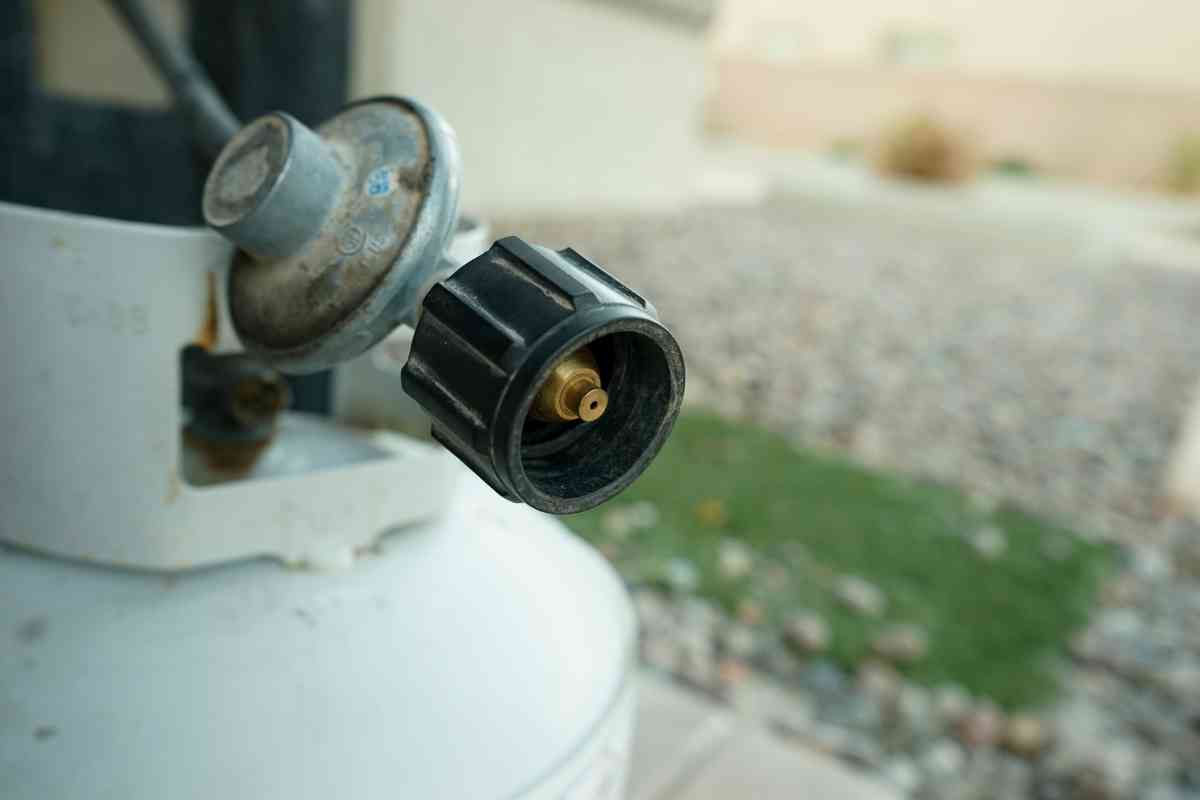
Gurgling and Humming Sounds
Whenever you hear a humming or gurgling sound, chances are the tank is overfilled. The extra gas puts excess pressure on the tank’s regulator and minimizes the tank’s outflow.
Expect a weaker flame, discolored pilot lights, and low heat since very little gas is released.
If this becomes problematic, the best move is to drain the tank. Even so, please don’t attempt to do it yourself. Have a professional propane technician help with this instead.
The technician knows how to ensure the goal is achieved without putting anyone in danger since they observe relevant safety precautions.
This humming sound also comes about due to trapped air or your gas regulator vibrating. Sometimes, the air pocket gets trapped inside a hose causing the sound. Alternatively, the sound comes when the regulation valve’s rubber diaphragm vibrates.
Hissing Sounds
This is one of the most common sounds propane users hear. Unfortunately, it is also one of the most dangerous since it signifies gas leaks.
Your reaction should be turning the gas tank off immediately and getting in touch with the propane technician.
Propane is highly flammable and can catch fire, causing serious implications. However, do not confuse this sound with the initial rush you hear when opening the propane lines after refilling.
Hissing sounds are leaks. However, these come about differently. For instance, portable units release a hissing sound when the hose is faulty or damaged.
It is advisable to examine the hose and ascertain the problem. Remove the hose and place it in a soap-water mix in a bucket. Let it submerge and observe it.
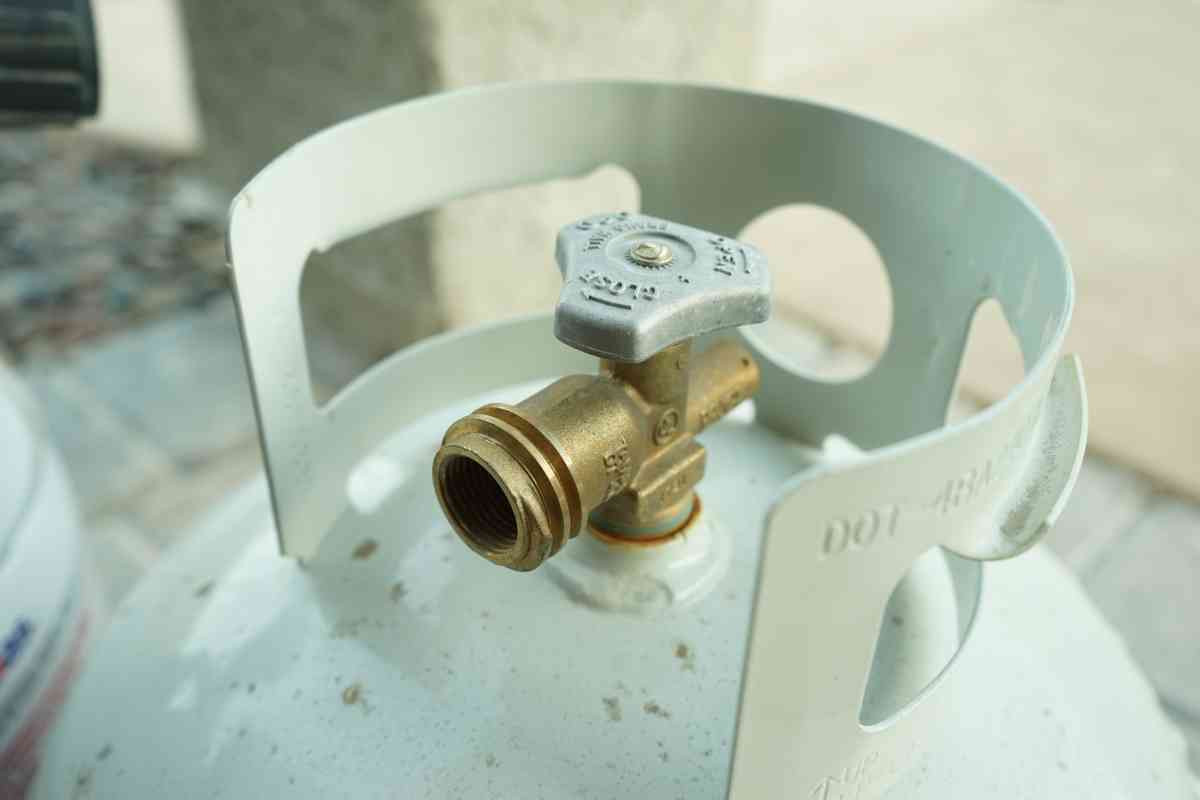
How to Detect Damage?
In case of damage, you will see some bubbles forming, and a hole emerges in the line. Some people choose to patch it, but the recommended move is to replace the hose pipe.
Larger propane tanks hiss for different reasons, and the feed line may not even be the cause. In most cases, the noise comes from the tank itself, so you should check the relief valve and bleeder.
Confirm that the bleeder line was not left open when it was filled. If so, close it, and the hissing sound will stop immediately.
Note that a huge plastic cap will likely cover the relief valve. If this cap is off, and the hissing sound persists, it could be the source.
Experts caution about staring into the valve or trying to close it yourself. Note that the valve is meant to help with pressure release and serves its purpose well. Pressure will build up inside the propane tank whenever the environment is hot.
You can aid the relief valve to close by cooling the tank off using a water hose. Usually, the tank readjusts depending on the temperatures in the surrounding environment.
Clanking Sounds
This is quite different from the loud banging sounds. It is often heard when the tank is operational or moving around. The sounds tend to have a more physical impact base.
You’ll hear the noises when the level-measurement float in the tank is loose and probably keeps knocking the container’s insides. This is not easy to resolve, and the best thing is to swap up the tank.
Does Smelling the Gas Matter?
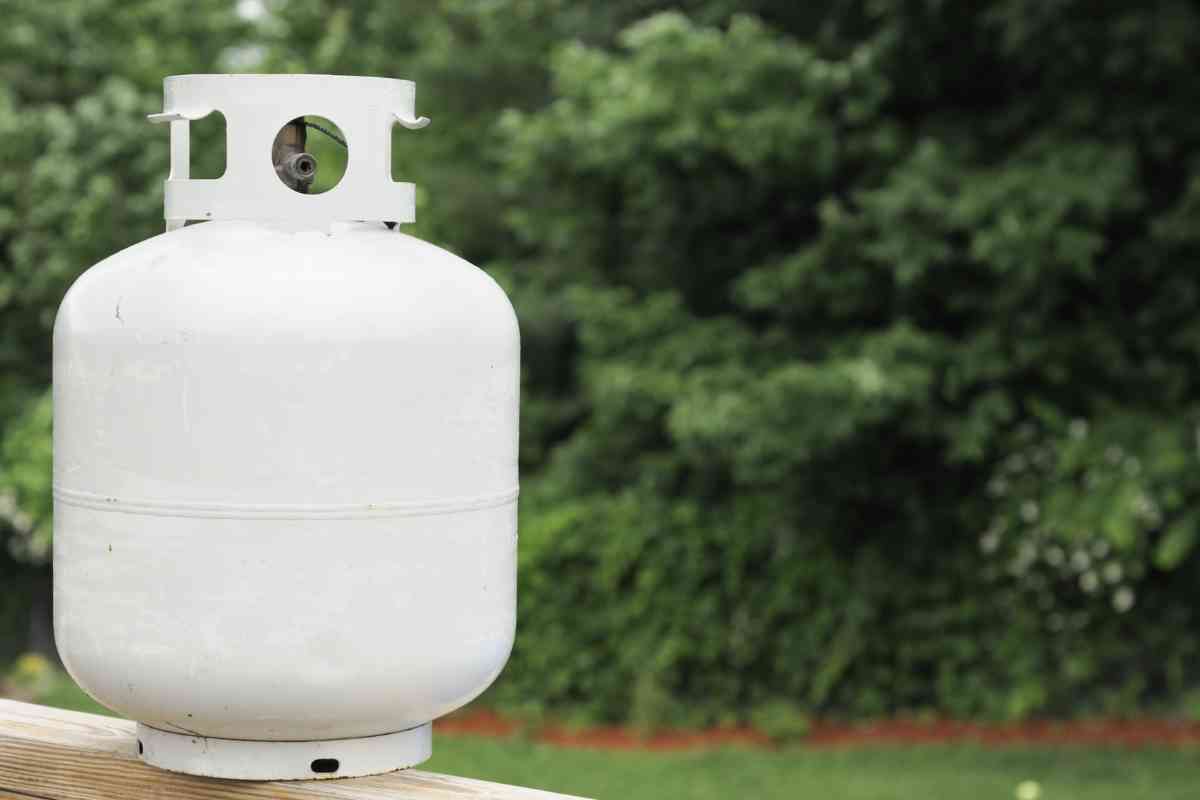
Sounds from your propane gas tank can be warning signs. How you respond matters as it could avert serious safety complications. However, you must watch out for scents or smells besides the sounds.
It doesn’t matter what sounds come from the propane tank. React promptly in case you detect a specific gas smell from the propane tank. This often indicates a leak, and the best cause of action is to shut off the tank immediately.
Get in touch with professional propane tank inspectors and have the tank examined. While it is true that a propane tank is odorless and you should naturally not depict any smells, companies add a strong chemical, mercaptan, to help with leak detection.
Failure to do this would have resulted in serious safety hazards in case of leaks.
Propane is one of the safest gasses to use, though. It is less likely to become a fire hazard, thanks to the integrity of the propane tanks. It is also one of the cleanest gasses to use if you observe safety.
Related Posts
- Do Propane Tank Gauges Go Bad?
- Propane Tank Making A Ticking Noise?
- Propane Tank Whistling Noise
- Is It Safe To Leave A Propane Tank In The Car?
- How Long Do Propane Tanks Last?
- Will Too Much Heat Make A Propane Tank Explode?
- The Reason Why Propane Tanks Get Cold
- Selling Old Propane Tanks For Cash: What You Need To Know
- Here’s How Many Times A Propane Tank Can Be Recertified
Key Takeaways
- Take all sounds from your propane tank seriously.
- Ask a technician to evaluate the gas tank if you are unsure about the sounds.
- Some sounds show that the tank needs a bit of adjustment.

